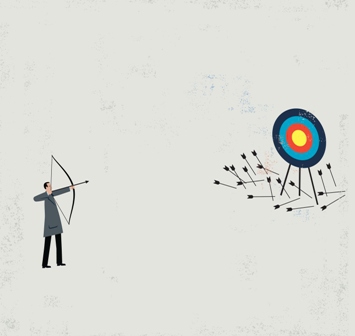The views expressed in our content reflect individual perspectives and do not represent the authoritative views of the Baha'i Faith.

[Editor’s Note: This is the first installment of a three-part essay.]
“If God is perfect, then why isn’t His creation perfect as well?”
Recently a friend asked me that age-old question – and followed it up with several more for good measure. As he put it:
“If God is the essence of every attribute, exalted above everything, perfect…God, who created the whole of creation and everything in it from nothing…surely, creation should be perfect also. And everything in it. A perfect creator MUST by definition create a perfect creation. That includes us, and the earth, and our feelings, and desires. Every atom attests to God’s might, and not one does not ‘glorify his Holy name’. Yet here we are — mankind. Through the ages, forever screwing up, waging wars, being selfish, clinging to dogma, missing the point, sinning. Why? It just doesn’t make sense to me in the slightest.
“And what about all the bloodshed, disunity and suffering caused by the misinterpretation of divine revelations and new manifestations? Did God in his ultimate might and wisdom not foresee this would happen? He must have. If the Baha’i idea of progressive revelation, that all the manifestations are ultimately one, that the prophecies for a new manifestation were so clear and obvious — why then, in every new age, the same problems over and over with all their myriad negative consequences? If it’s so obvious, so clear—why hasn’t mankind responded as such? I really don’t understand.”

So I decided to take a stab at answering this frequently asked question. But it’s not easy, or simple. To start, the great philosopher Leibniz coined a whole new word for this huge area of inquiry – theodicy. He said theodicy meant justifying and proving God’s existence in light of humanity’s imperfections.
As we look at the various ontological levels that make up all that we know about creation, we find a hierarchical organization, from mineral to vegetable to animal to human and beyond. Each of these levels has a particular characteristic or set of characteristics — mineral with the power of cohesion; vegetable with the capacity for growth by binding energy from the sun through the process of photosynthesis; animal with its ability to perceive through the five senses, to move about, and to engage in elementary communication and thought; human with our capacity of conscious knowing through psycho-motor, perceptual, cognitive, affective, and volition. We humans each have the ability to formulate an intention and then pursue its accomplishment, all coalescing in dynamic and functional integration and unison.
Our human consciousness, as defined by Dr. Elena Mustakova-Possard in The Journal of Moral Education, creates itself in an internal dialogue between mind and heart guided by volition.
When we commit to the most fundamental assumption — postulating the existence of God – we generally don’t imagine a highly intelligent Being up one notch on the ontological ladder from humanity. Instead, we want to understand God the Creator, Who by definition exists far beyond the reach of man on any dimension of human knowing. We have no choice but to accept the limits of those human boundary conditions, because that’s the way God chose to create it.
However, unlike all of the ontological levels below mankind (animal, vegetable, and mineral) who have little conscious awareness of the reality of those levels above, through the gift of consciousness we can speculate beyond the limitations of our human constraints.

In science, we do this all the time, by formulating a hypothesis based on a set of assumptions about some phenomenon we want to know more about. Then we do the research by gathering data, which either affirm or deny the validity of that hypothesis and the assumptions which support it. In short, we do our research initially, not based on fact, but on faith. The difficulty and complexity of research increases as one goes up the ontological ladder, from mineral, to vegetable, to animal, and to the human sphere, in pursuit of the unknowns at each level. But because of this gift of consciousness and the way humanity has historically developed it, we can speculate beyond the knowable into ultimate unknowables with some degree of success. The Baha’i writings elaborate:
But praise be to God, the world of existence does not culminate here. If this were so, existence itself would be sterile. There are many worlds of light. For even as the plant imagines life ends with itself and has no knowledge of our existence, so the materially-minded man has no knowledge of other worlds of consciousness. – Abdu’l-Baha, Divine Philosophy, p. 123.
As implied in the question my friend asked, our understanding has its limits. We can make the assumption of a God the Creator, act in accordance with that magnificent hypothesis, that greatest of assumptions, and then proceed accordingly. Or we can reject that assumption and try to live our lives without a belief system that recognizes a Creator. Just like testing out a scientific hypothesis, we can test out the validity of an assumption that God the Creator does exist, by acting in accord with his Revelation. In other words, we can explore our own consciousness and find the answers there. Please follow along as we tackle this toughest of all questions in the next two installments of this three-part article.
Read the next article in the series: Depression, Disintegration and the Divine Elixir
You May Also Like
Comments

















Is it possible that, from God's Perspective, in TRUTH, humans are on the bottom rung of the ladder of "enlightenment"?
Immerse yourselves in the ocean of My words, that.......